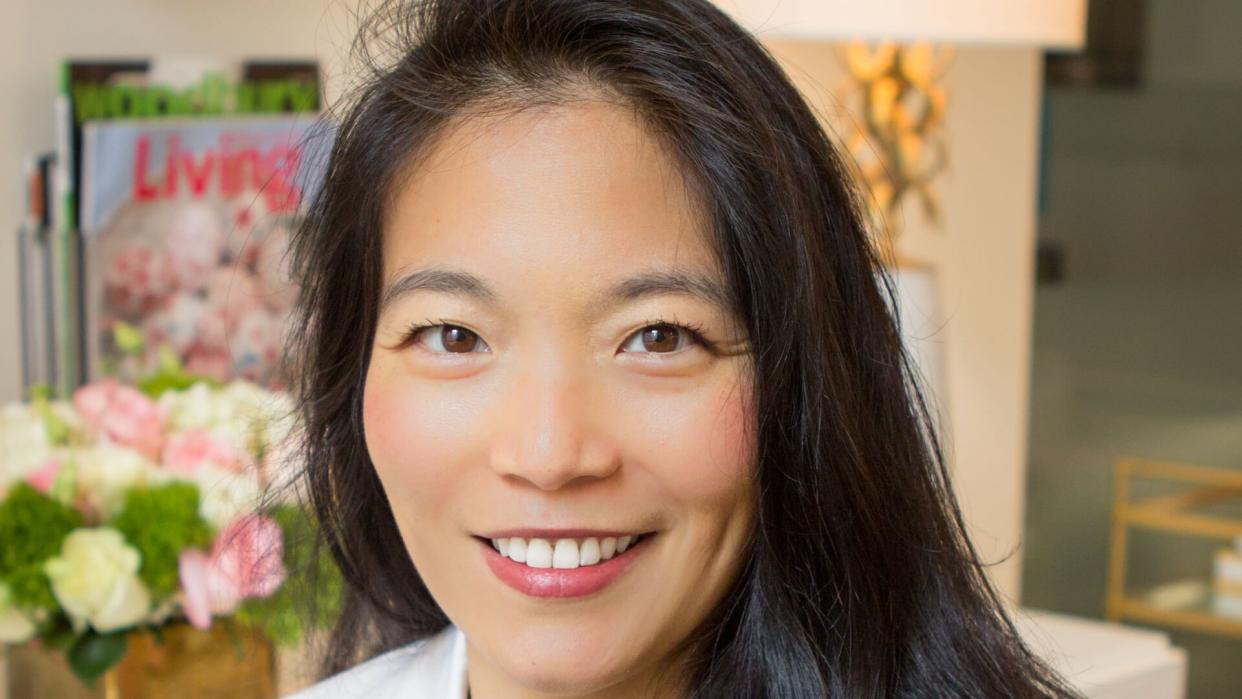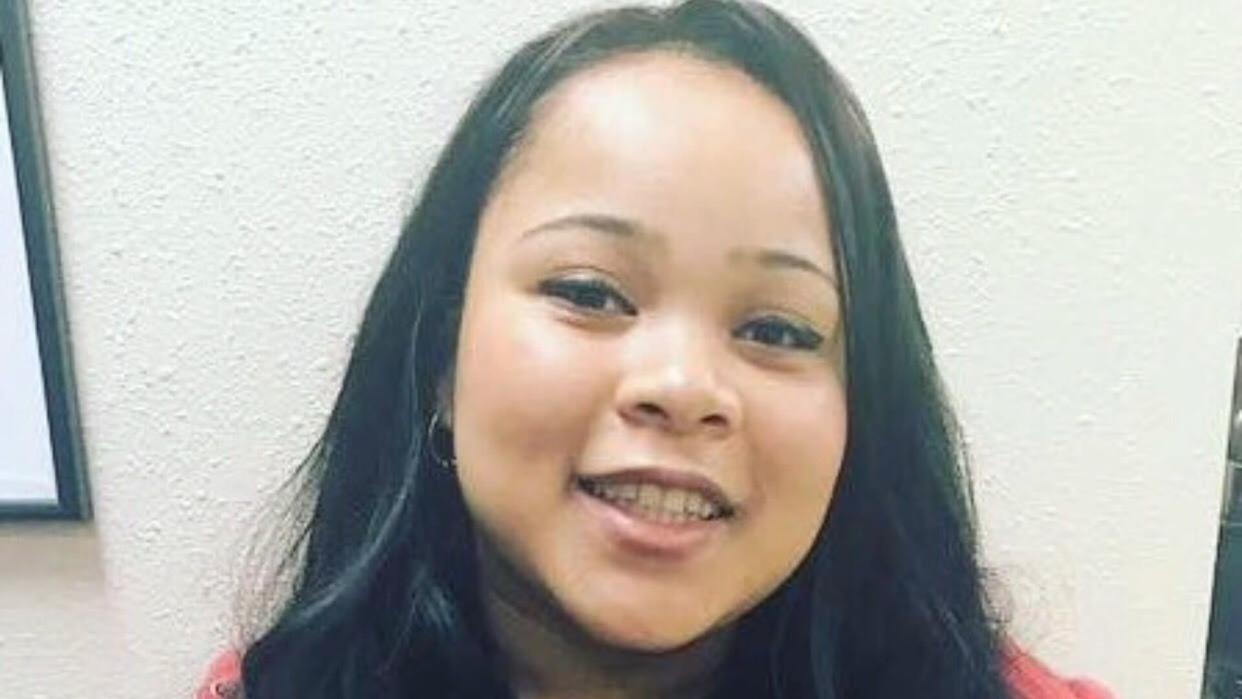These 13 Women Battled Workplace Discrimination — and Won

The #MeToo movement has helped expose sexual harassment in the workplace, but the difficulties that women face on the job are by no means limited to unwanted advances or inappropriate remarks. On average, women are paid less than men in every state. And, they're twice as likely as men to encounter gender discrimination at work, according to a Pew Research Center survey.
On the Job: These 13 Women Battled Workplace Discrimination — and Won
Read: 4 Essential Tips for Moms Re-Entering the Workforce
To continue inspiring women in their careers, it's crucial to share these stories about the adversity that women have battled and how they overcame it.
Last updated: July 8, 2021

Getting Excluded From Important Meetings
When Kelly Lockwood Primus became the only female vice president of a national water company, she quickly learned how difficult it would be as the lone woman among a group of male executives. During her first week, Primus found out that she hadn't been asked to join a weekly executive team meeting that all of the vice presidents were expected to attend.
After the meeting was over, she asked the vice president of human resources why she hadn't been included. "He tried to explain it away as an oversight, but I couldn't help feeling like I was being discriminated against," Primus said.
Read: 15 Signs Your Employer Wants You To Retire

How She Overcame It
After complaining to the vice president of human resources, Primus was officially made part of the executive team. "Needless to say, if I had not advocated for myself, I never would have been included in those weekly meetings where important decisions were being made about the direction of the company, and the good old boys club would never have taken me or my role seriously."
Primus now is the president and COO of Leading Women, a consulting firm for companies that are committed to closing the leadership gender gap.
Find Out: 5 Things To Negotiate at Your Job Other Than Salary

Feeling Pressured to Hide a Pregnancy
In 2012, Talia Goldstein found out she was pregnant while trying to raise funds to launch her matchmaking company, Three Day Rule. She was thrilled to start a family but had read about an angel investor who was openly reluctant to provide funding for a pregnant CEO. "In fact, when I spoke to several advisors about their thoughts, I kept hearing the same sentiment," Goldstein said. "It was awful to know that because I was pregnant, investors would suddenly second-guess whether I was capable enough to run a company."
So, she hid her pregnancy. During the four months that Goldstein spent fundraising for her company, she wore ponchos and baggy clothing. "Looking back, I wish that I had more role models and other business leaders telling me that it was perfectly fine to be a mother and an entrepreneur," she said.
Interview: How To Interview for a Job Over Zoom

How She Overcame It
Goldstein said she had transformed the Three Day Rule from a pipe dream to a matchmaking powerhouse by 2014. Then, before starting another round of fundraising, Goldstein found out in 2015 that she was pregnant again.
"This time, I wouldn't be hiding my baby bump," she said. "We went on to raise even more than we had set out to." But it wasn't because investors were looking past her pregnancy. In fact, no investors who met with her in person gave her money for the company -- only investors who spoke with her on the phone or with whom she already had a relationship with did.
"The only way to end this stigma is for more women to become part of the process -- founding companies, investing and fundraising all while having a family," Goldstein said. "The more we talk about our experiences and stand for what we believe in, we blaze the trail for future female founders, who I hope won't have to think twice about their decision to be a mother and an entrepreneur."

Losing Out on Promotions to Less Qualified Men
During her 20-plus years of experience in the financial services industry, Thailand native Jiab Wasserman has faced countless instances of workplace adversity and gender discrimination. Despite her MBA and bachelor's degree in industrial engineering, she wasn't paid or treated the same as her male colleagues. Men who hadn't earned advanced degrees and sometimes had less experience than her would be promoted to positions that Wasserman said she deserved.
While Wasserman was working as a strategy analyst, her company promoted a male colleague who knew nothing about strategy and struggled with statistical concepts. "I had to tutor him," she said. "His exact words to me were, 'Please dumb down your presentation,' so he could present it as his own in executive meetings."

How She Overcame It
Wasserman said she didn't let the gender discrimination that she faced discourage her. Instead, Wasserman worked hard to learn new skills and was always willing to take on new projects so that she would be ready if an opportunity to advance came along. Most importantly, she didn't give up.
"Before I landed my final position as a vice president of credit risk management, I had applied internally for 83 positions," she said. And by living frugally and saving as much as she could, Wasserman was able to retire at age 53 and blog about her retirement adventures at Your Third Life.

Not Being Taken Seriously
As an African-American woman, Keli Hammond said she has experienced both racial and gender discrimination at work. But the biggest adversity for her has been reverse ageism.
"It's been happening since I entered management over a decade ago in my early 20s, continued as I moved into a leadership role and still happens now that I own my own firm," said Hammond, who is owner of marketing and communications agency B Classic and author of "Craved: The Secret Sauce to Building a Highly Successful, Standout Brand."
When Hammond was presenting to the board of directors and leaders at her organization, a board member interrupted to ask how old she was and why they should trust her because she couldn't possibly have enough experience. "I was stunned, not to mention embarrassed and caught off guard," she said.

How She Overcame It
Hammond said there's a belief in the business world that you have to be a certain age to be knowledgeable. It would be unacceptable to ask older workers their age, but Hammond said people don't hesitate to ask her about her age in business settings.
Hammond said that she has gotten used to the question but feels like she has to put in extra work to persuade people that she's competent. Because Hammond has worked hard, though, she has won industry awards and succeeded in building a solid track record in the marketing industry.

Being Patronized by Older Men
Leslie Tayne has no shortage of stories about the discrimination that she has faced as a female debt relief attorney, such as being the brunt of sexist jokes, fearing that she couldn't disclose her pregnancy and having to hire a male attorney to join her firm to land business opportunities.
But one of Tayne's most degrading experiences happened when she attended a debt collection industry conference, where she was patronized by an older man at one of the conference sessions. "On the way out, instead of shaking my hand, he patted my head," Tayne said. "I was so disgusted and embarrassed."
Retirement: 15 Signs Your Employer Wants You To Retire

How She Overcame It
At the time, Tayne was starting out in her career and afraid of rocking the boat, so she said nothing. "Today, I would've said, 'How about we shake hands because we're equals,'" she said.
Tayne didn't let the discrimination that she faced early in her career deter her. Her law firm, Tayne Law Group, is now one of the top providers of debt relief services. And, she's the author of the best-selling book, "Life & Debt: A Fresh Approach to Achieving Financial Wellness."

Being Outnumbered in a Male-Dominated Industry
Danielle Putnam works in an industry dominated by men: plumbing, electrical, and heating, ventilation and air conditioning (HVAC) contracting. It's not just that she's outnumbered -- Putnam feels that she's treated differently as a woman. What makes her experience especially hard is that Putnam acts in a leadership role as president of The New Flat Rate, a menu pricing system for plumbing, electrical and HVAC contractors.
"I've had male authority figures in other companies question my title as president because I'm a woman, but also because of my age," Putnam said. "I'm not who you expect to see leading a company in this industry, but I've worked hard, and I earned this position."

How She Overcame It
Putnam said it takes longer for men in her industry to interact with her in an open, honest way. But she doesn't let it deter her. "As we work together, their perception changes and they see me as [their] colleague," Putnam said. "I'm the president of this company, and yes, I'm a woman. I'm also a mom, a daughter, a sister, a friend and a lot more. Being a woman doesn't define me, and it doesn't dictate my job performance."
Putnam is helping other women in her industry overcome adversity by serving as president of Women in HVACR. The group fosters networking opportunities, education and mentoring for women. It's also implementing an ambassador program that will send HVACR professionals into schools to talk about careers in the trade.

Encountering Microaggressions in All Areas
Joy Altimare is chief brand and engagement officer at Engaging Healthy Employees (EHE), a leading progressive healthcare provider with a focus on prevention. However, Altimare has faced adversity as she climbed the career ladder to her leadership position.
"As a black woman working in corporate America for 20 years, I share similar stories of many women and women of color [in] gender inequality, microaggression based on race and general bigotry, and elitism," Altimare said. "It's not just one instance that I think is noteworthy. I think that it's the consistency of being overlooked, underestimated and sometimes patronized that provides one with a choice."

How She Overcame It
To overcome adversity, Altimare said she chose to have compassion toward the ignorant without sacrificing her voice. "Every day, I make a choice to lead my team and my colleagues by example -- demonstrating what it's like to give everyone the support they need to soar and achieve their professional goals," she said.
Read: 6 Career Mistakes To Avoid During an Economic Downturn

Facing Derogatory Comments
Stephanie Hammell learned the hard way that others in her industry thought less of her because she's a woman. Hammell is an investment advisor through LPL Financial, the largest independent broker-dealer in the nation. While attending a financial industry conference in 2018, Hammell participated in a hike with other advisors. When two male advisors asked about her credentials, Hammell said she had an MBA with a specialization in finance.
"One of the men made the comment, 'Maybe if you get another credential, you'll be more than just a pretty face,'" she said. "The other man with us chose to ignore the comment, and I chose the reaction to laugh it off." But this wasn't the first time that men in her industry had made derogatory remarks about Hammell.

How She Overcame It
"I chose the reaction to ignore or laugh these derogatory comments off because, at the end of the day, I know my professional value," Hammell said. "It goes back to the saying, 'Sticks and stones may break my bones, but words will never hurt me.' It is the difference and the impact that we women make in the world that will silence these comments in the end."
Plus, Hammell is having the last laugh -- she's in the process of getting her certified financial planner designation, which is the highest standard of excellence in the financial planning industry.

Feeling Afraid to Ask About Work-Life Balance
A few years ago, Georgene Huang lost her job as an executive at a major company due to an unexpected management shake-up. The timing couldn't have been worse because she was two months pregnant. "I was in this position of looking for a job and going on interviews and feeling quite pressured to hide my pregnancy," Huang said.
While interviewing, she wanted to ask companies about their maternity leave policies and what sort of work-life balance they enabled. But, in the end, she didn't ask -- Huang was afraid that she would be judged as less than fully committed to her career.

How She Overcame It
During her job search, Huang wanted to hear from other women about how they overcame the challenge of asking work-life balance questions during interviews without being stigmatized. She turned to the internet but was surprised by the lack of information that she found.
So, Huang decided to create a community, Fairygodboss, to help women connect and share information about workplace issues. "Today, millions of women turn to Fairygodboss for that sense of community and to connect with other women," she said. "We're obsessed with improving the workplace for women and believe the No. 1 way to do that is through transparency and women collaborating with each other."
Let's Talk: 15 Work Conversations That Could Cost You Your Job

Getting Underestimated Despite Being Overqualified
Carol Gee had a long career in higher education as both an instructor and an administrator. In the final six years of her career, Gee worked as an editor for a business school. "As [a] retired military vet, author of two books at the time and enjoying a vibrant freelance life, this was the ideal position nearing the end of my career," she said. Gee was supervised by professors in her department, who took turns serving in this role.
"My last year in my department, the professor whose turn it was came to me to say that the department no longer needed an editor but rather another admin assistant," she said. "With nearly 28 years in higher ed that included a master's degree and past experience as an adjunct faculty and instructor, and a former department administrator with my own administrative assistant, this was not something I even contemplated. He thought that I would accept this [offer, but this] showed he didn't know anything about me."

How She Overcame It
Gee had already considered turning her skills in higher education into a small business before her supervisor suggested that she take a lower-level position. "The time seemed right," she said. "So I put in my paperwork." Rather than getting demoted, Gee retired at age 61 to pursue her own passions.

Encountering Racism From Co-Workers
As an African-American woman, Brittany Gamble said she has encountered racism in the office. There's one instance, in particular, that stands out to her. At Gamble's previous workplace, a variety of holidays were celebrated -- everything from Hanukkah to Cinco de Mayo. "I asked my co-worker what we did for Black History Month," Gamble said. "She said, 'We don't do anything.' The energy around us suddenly became very awkward, and I didn't understand why."
Gamble asked if she could help the office celebrate Black History Month by setting up a table with pictures and biographies of some of the most inspirational black people in history. "Her nose pinched up, and she frowned and responded, 'We don't do that here,'" Gamble said. "I was pretty new in the working world, so her outright racism stunned me."

How She Overcame It
Gamble said that she didn't let her co-worker discourage her. "I shared my culture and history with everyone at my workplace," she said. "I was happy to share pieces of my culture and share my pride with my other workers. I didn't let one racist person stop me."
Gamble now works at MyCorporation as a social media specialist. "I'm happy and fortunate to say that I currently work for an organization that embraces diversity and sees all of the opportunities and knowledge that people of color bring," she said.

Receiving a Smaller Bonus Than a Male Colleague
Jenn Lishansky has faced sexism in the workplace throughout her career, but one instance stands out more than others. After leading the most profitable and highly attended fundraiser ever for the nonprofit organization where she worked, Lishansky said she was expecting to receive a bonus. "I had worked 100-hour weeks, ruining my health for months and seen in the past year's budget that my male predecessor had received a $3,000 bonus for a less successful event," she said.
However, when Lishansky's bonus check arrived, it was $500 -- one-sixth of what her male colleague had received.

How She Overcame It
Lishansky asked the executive director why her bonus was so much smaller than the one given to a male colleague. They met five times trying to resolve Lishansky's resentment and her boss's unwillingness to provide a larger bonus. "During our sixth meeting, I told her that if the successes I brought to the organization would not be compensated equally to my male predecessor's, I quit," she said.
Lishansky's boss let her walk out but called her back 15 minutes later. She then offered Lishansky an equivalent bonus, a promotion and a small raise. "I learned [at] that moment to stand up for my value, a lesson I've applied at every organization I've worked for since," she said.

Getting a Gender-Biased Performance Review
Melissa DeLay got her start in the corporate world in 1999 -- and that's when she had her first run-in with workplace discrimination. During DeLay's first performance review, her manager told her that she was pushy, aggressive and overbearing. "I had never heard those words to describe me, and I was shocked," DeLay said.

How She Overcame It
Although she was shocked, DeLay said she maintained her composure and asked her manager if he could give her an example of when she acted pushy, aggressive or overbearing. "'No,' he replied. 'It's just a general observation,'" DeLay said.
She realized that her manager would have never used such words to describe the men in her workplace. "He was just saying it to hurt me," said DeLay, who is now the founder of crisis communications agency TruPerception. "This beautiful realization gave me the freedom to neutralize his otherwise piercing comments and take them in stride."
More From GOBankingRates
Photos are for illustrative purposes only. As a result, some of the photos might not reflect the people listed in this article.
This article originally appeared on GOBankingRates.com: These 13 Women Battled Workplace Discrimination — and Won
